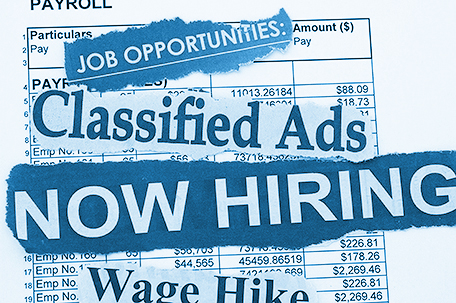
By State Rep. Mike Schlossberg (D-Lehigh)
Labor Day is a day dedicated to recognizing the social and economic achievements of American workers and their contribution to the strength, prosperity and well-being of our wonderful nation. When the first Labor Day was celebrated in September 1882, it was at a time when American cities were the hub of industrial employment. That being said, times have changed, and Pennsylvania must change in order to be able to provide first-rate jobs for our residents.
In 2017, the American worker faces two very troubling trends: automation and the radical shift of the retail economy. Both trends threaten to leave hundreds of thousands of hardworking Americans without a range of employment options, including entry-level service and family-sustaining manufacturing. Every elected official should be paying attention to the effects these trends present to the American economy.
For years, manufacturing presented the opportunity for family-sustaining wages. In the Lehigh Valley, Mack Trucks, Bethlehem Steel and Bell Labs helped make materials and products that reshaped the American landscape. In the process, tens of thousands of Lehigh Valley workers were able to raise families, live comfortably and put aside enough money for a sound retirement. This work, often backbreaking and difficult, helped to form a strong middle class and fuel an era of prosperity for our nation. Slowly, at first, and then rapidly, automation crept into the economy. The difficult work done by laborers started to be performed by robots and machines.
The good news is that emerging technology can do so much to improve lives and drive down costs. The bad news is that the same technology is costing American workers’ jobs. Some researchers estimate that as many as 47 percent of existing jobs could be automatic in the next two decades. In Pennsylvania, approximately 560,000 people worked in manufacturing in 2016. What do we do in 20 years when approximately 280,000 Pennsylvania manufacturing jobs are lost to automation?
The retail sector, where roughly one in 10 Americans is employed, is also on the verge of dramatic shifts. Since 2002, department stores have lost 448,000 jobs, a 25 percent decline. In October 2016 alone, retail lost 89,000 jobs. While e-commerce has seen employment increases, that sector has only added 178,000 jobs in the past 15 years. This trend is alarming for Pennsylvania, which currently has 638,016 retail jobs being filled and 288,000 transportation and warehousing jobs being filled.
Given the breakneck speed with which these changes are happening, I think it is safe to say that we know what is coming our way. Retail is going to continue to change as e-commerce becomes more pronounced, and manufacturing is going to automate. As policymakers, we have a few choices on how to proceed. The first option — do nothing — is unacceptable. The end result will be too many people unable to find a family-sustaining wage and rampant unemployment. The option I prefer is to prepare for the transition.
Lawmakers need to get a deeper understanding for the effects these changes will have on our economy and our commonwealth. That is why I have requested the Legislative Budget and Finance Committee to research the effects of these two trends on Pennsylvania’s workforce and our economy. My focus is first and foremost on the workers and what we can do to help them avoid a catastrophic outcome. Studies like these are not meaningless documents; they serve as guideposts to inform our next decisions. We need professional advice to tell us what to do and to do it, and I look forward to learning more from the experts on how we can best help Pennsylvania workers.
In addition to getting our hands around the problem and planning to support Pennsylvania’s workers, I also introduced legislation to ramp up apprenticeships in manufacturing jobs that do not require a college education, but do require technical training. By 2020, the Commonwealth is expected to have a shortage of 170,000 skilled workers who would benefit from a starting wage of approximately $60,000 a year.
The Manufacturing and Apprentice Grant Program would allow employers and workers to create opportunities for workers who are then able to move into those jobs that pay well, support families and plan for a comfortable retirement.
The rapid changes to the American economy show no signs of slowing. While we take time now to reflect and honor the American labor force and its history, we owe it to our children to ensure the benefits of the American Dream can be preserved for future workers.
















Leave a Comment